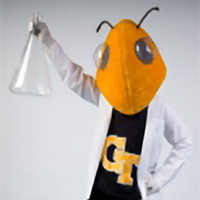
About
I received my BA from Grinnell College in 1982 and my Ph.D. in Experimental Psychology from the University of Michigan in 1988.
My research interests include:
- Creating examples to help learners form meaningful and generalizable solution procedures. I and the students in my lab have explored this issue in domains ranging from probability and physics to ballet.
- The use of task analysis techniques for identifying what a person needs to learn in order to solve problems or carry out procedures in some domain.
- Using information from task analyses to guide the construction of teaching and training materials including computer-based (multimedia) instructional environments.
- Exploring technology such as animations and embodied conversational agents (ECAs) for improving interfaces and helping people learn and carry out tasks more easily.
- Analogical Reasoning
For additional information about my research, please also see:
Contact Information

About
My research spans several related research areas of differential, educational, cognitive, applied experimental, and industrial and organizational psychology. Theory and empirical research I have conducted relates to the nature of adult learning, skill acquisition, student and employee selection, training, abilities, personality, and motivation. In collaboration with Professor Kanfer and our students, recent empirical research and theoretical contributions address the ability, motivation, personality, interest, and self-concept determinants of skilled performance and training success, and on the development and expression of intellectual competence in adulthood. Current research projects focus on age differences and gender differences in the breadth and depth of adult knowledge, on the taxonomic nature of perceptual speed abilities and their role in the development of skilled performance, and on physiological correlates of cognitive effort and fatigue.
Contact Information

About
I am interested working memory capacity and the relationship of that concept to the concept of attention control. I have argued that individual differences in the construct measured as working memory capacity reflects differences in the ability to control attention to internally generated and externally elicited representations and that differences in this ability is an important component of general fluid intelligence (Engle & Kane, 2004). I have also entertained the likelihood that these differences reflect functioning of the normal frontal lobes which in turn reflect genetic differences in the regulation of dopamine and possibly other neurotransmitters.
Contact Information

Contact Information

Contact Information
Pages
- « first
- ‹ previous
- 1
- 2
- 3
- 4


